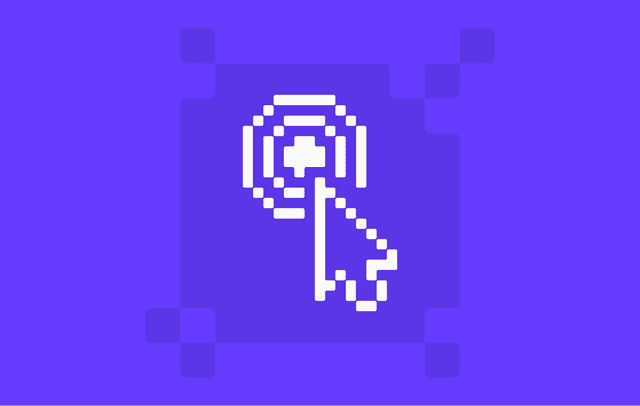
Workbrew 1.4 Release Notes
Luke Hefson
Workbrew 1.4 is here.
Here’s what’s fresh in this release:
-
MDM Integrations now included in the Free plan – yep, we’re generous like that
-
GitOps approval flow for Default Packages – request new packages via pull request
-
Package Dependency Insights – look before you remove a package
-
Fine-grained email alerts – be notified just enough
-
Run logging improvements – find and understand failed runs faster
-
Email domain controls – block sign-ins from outside domains
This release makes it easier to shape how software is installed across your organization, while reducing friction for everyone involved.
MDM Connections now Free
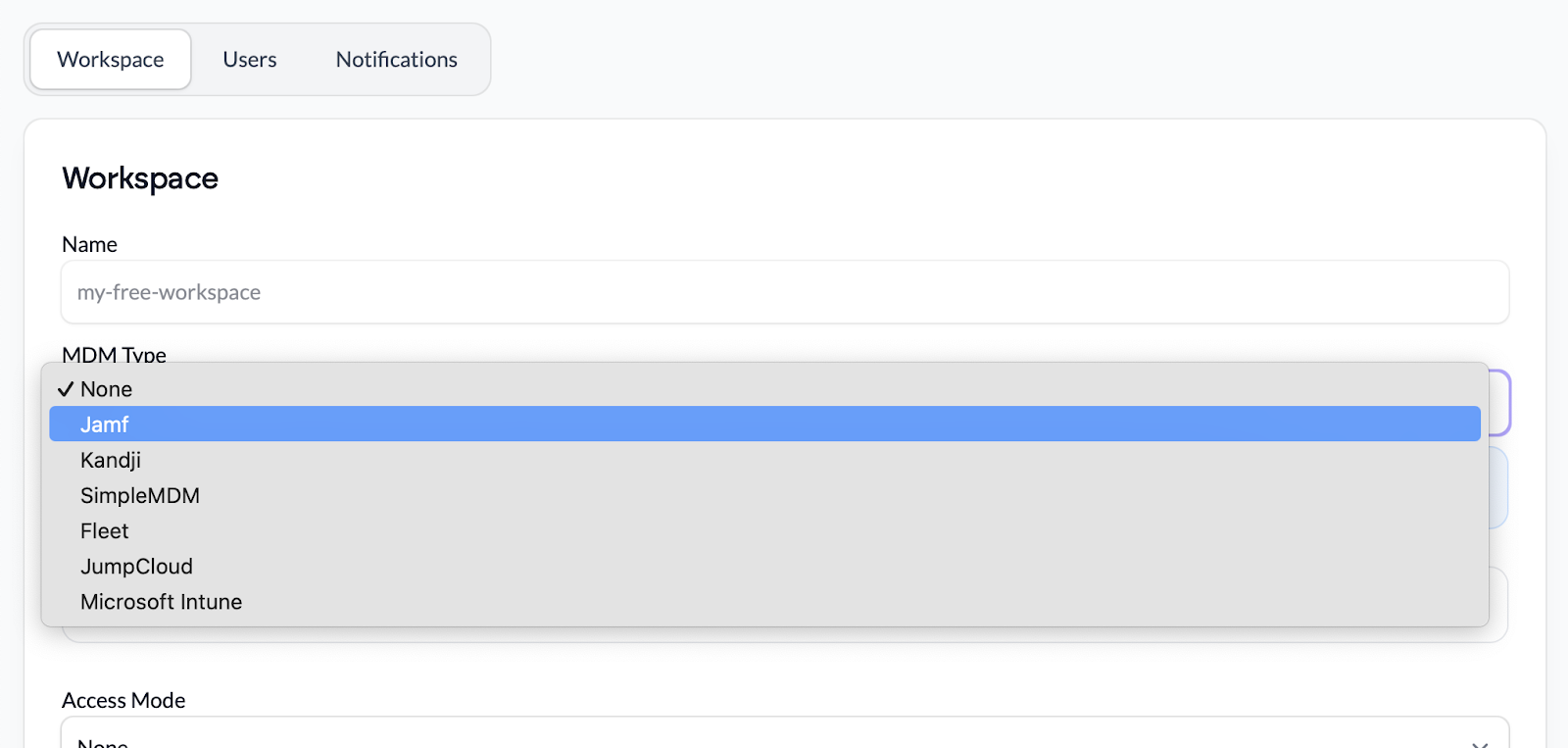
You can now connect your MDM to Workbrew at no cost, making it simpler to manage Workbrew across your entire fleet.
View device data, stay in sync, and cross-reference with your MDM for complete fleet-level control.
For step-by-step instructions on connecting your MDM to Workbrew and enabling zero-touch enrollment, see our handy guides for all major MDMs.
MDM Connections are now available on all plans.
Review and Approve Default Packages via GitHub

You can now manage fleet-wide package updates through GitHub in a way that fits your team’s workflow.
Instead of one central gatekeeper, you can choose the level of control that works for you: self-serve installation, peer review, manager review, multi-layer approval, or fully centralized review. Using familiar GitHub pull requests, developers propose changes to your Brewfile, get the right level of review, and merge when ready. Workbrew then syncs those changes automatically.
This approach combines visibility, history, and collaboration. Every change is tracked in Git, one person’s improvements benefit the whole team, and newcomers automatically get the same setup as everyone else.
Powered by our new GitHub Action, this keeps your Brewfiles in sync with the Workbrew Console and reduces manual updates while making package management part of your normal developer workflow.
Need help setting it up? Contact us.
For Admins:
-
Decide how much control to delegate
-
Maintain full visibility into package changes
For Your Team:
-
Propose and review new tools in GitHub
-
Share improvements across the whole team automatically
GitHub-based Default Package Management is now available on Pro and Enterprise plans.
Package Dependency Insights
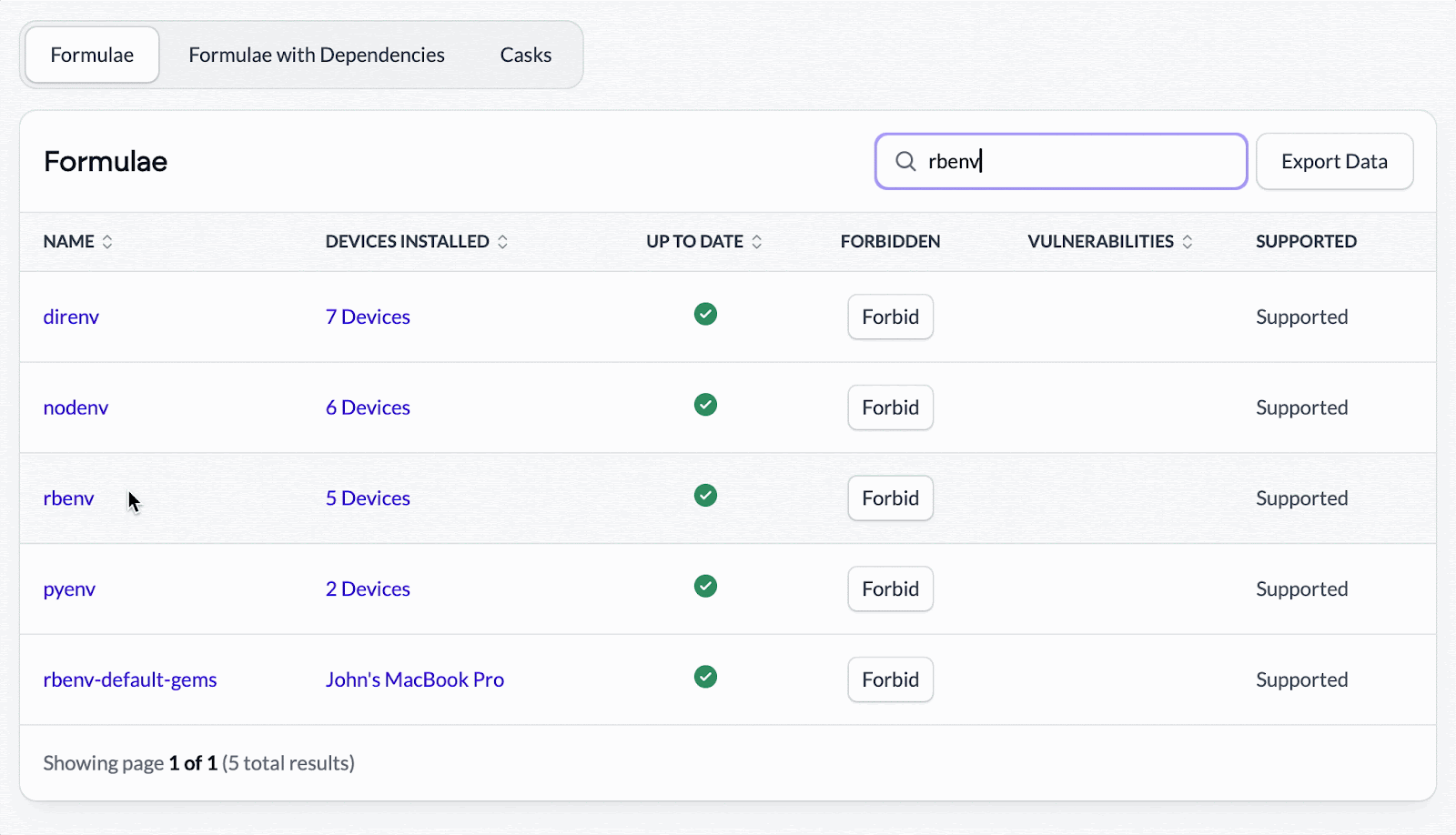
You can now see package details even for tools that aren’t installed on your fleet. The Console now shows dependencies and dependents on package detail pages, so you can understand how packages relate before making changes.
This means you can quickly spot when removing or forbidding a package might affect others, even if you’ve never installed it in your environment.
For Admins:
-
See full dependency chains before making policy changes
-
Prevent downstream issues by understanding how packages connect
For Teams:
-
Understand what powers the tools you use every day
-
Discover shared dependencies between apps
Package dependency insights are now available on all plans.
Custom Alerts: Right-Sized Notifications
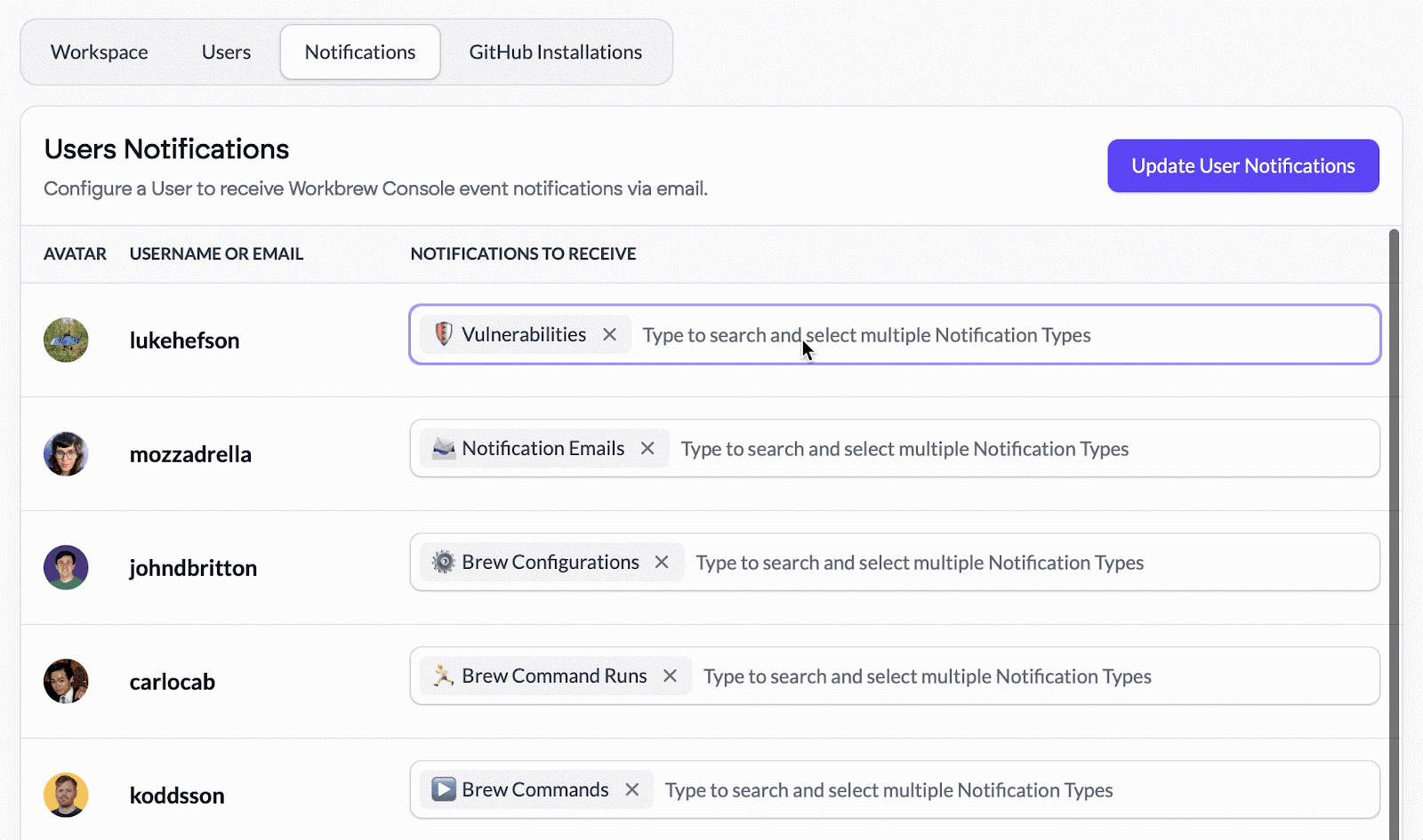
User notification emails now support fine-grained alerts.
Set rules for which notification types you are most interested in and be updated when there is a change.
For example, you might only want to know:
-
Are there new vulnerabilities?
-
Have any policies been violated?
-
Have any remote command runs failed?
…without having to follow all other notification types. Stay informed without the noise.
For Admins:
-
Set alert rules that match your workflows
-
Avoid alert fatigue by targeting what matters
And coming soon!
- Custom alerts for Slack notifications and Webhooks.
Custom Alert Subscriptions for user notification emails are now available on Pro and Enterprise plans.
Find Failed Runs Faster with Run Improvements
Warnings and errors are now separated from general command output, so issues are easier to scan and debug.
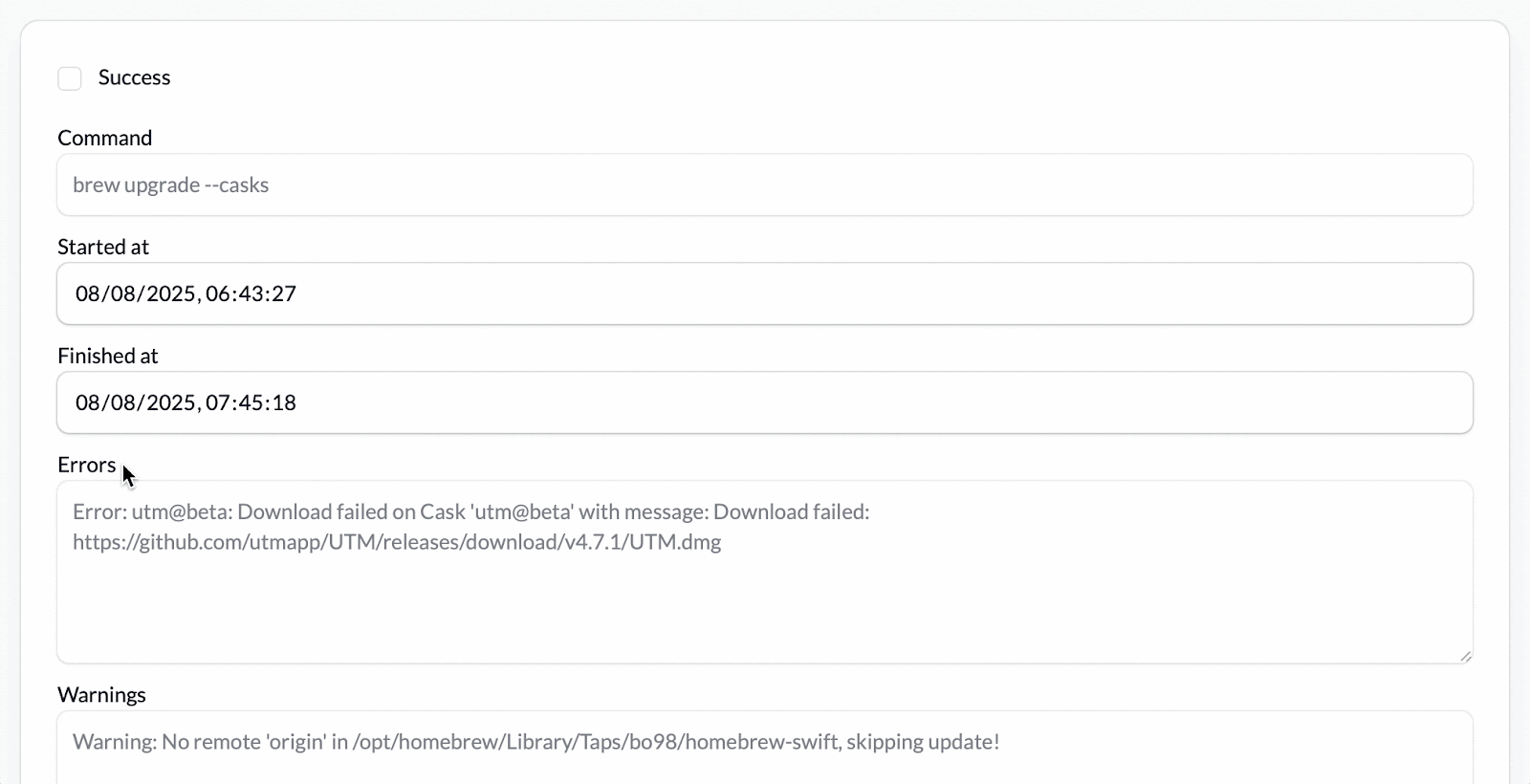
The Brew Commands list now shows run status at a glance. Quickly identify failed executions and dive into logs for more detail.
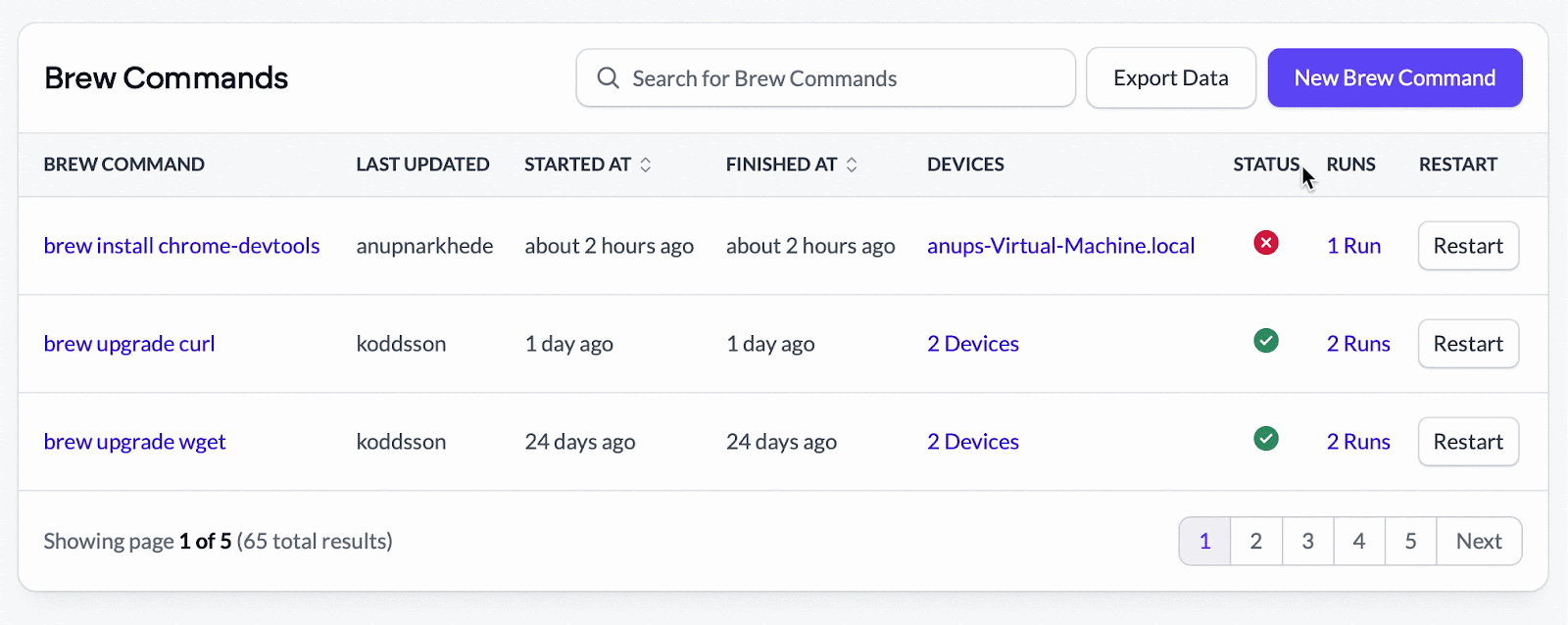
Run results can be exported manually or accessed via the API. Export for dashboards, audits, or that one spreadsheet-loving stakeholder.
Brew Run Improvements are now available on Pro and Enterprise plans.
Allowed Domains: Lightweight Access Control
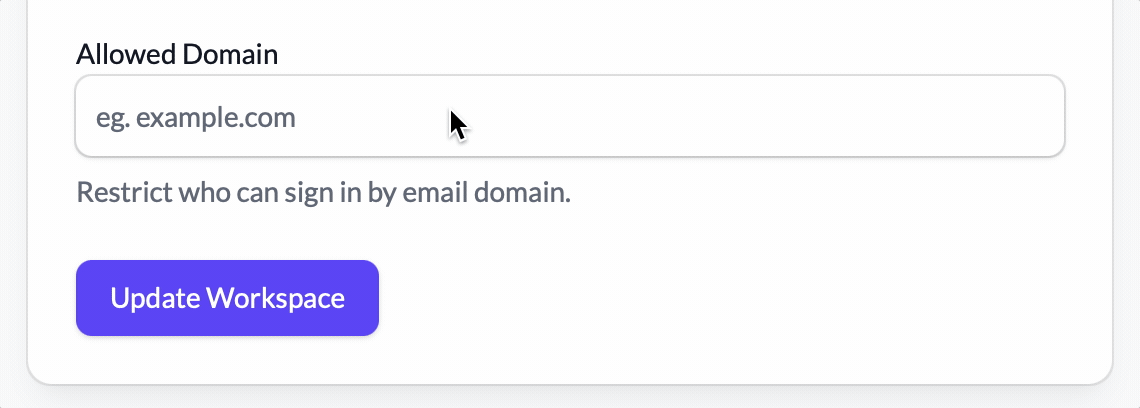
You can now restrict sign-ins to specific email domains from your workspace settings. This helps ensure only people from your organization can join, reducing the risk of unauthorised access and keeping your workspace membership clean.
Gain simple but effective control without the complexity of full SSO.
For Admins:
-
Keep your workspace limited to known users
-
Add an extra layer of security with minimal setup
Allowed Domains are now available on Pro and Enterprise plans.
That’s what’s new in Workbrew 1.4
Want help making use of any of these features, or need advice on structuring your workspace? Reach out to us. We’re always happy to help.